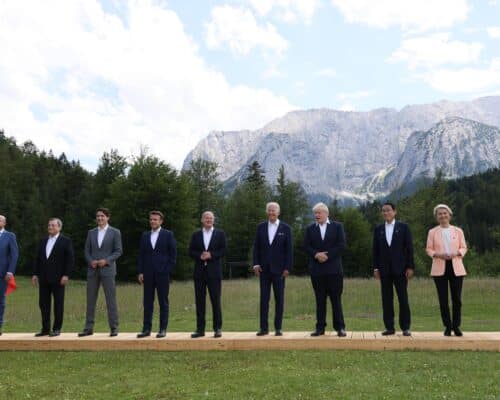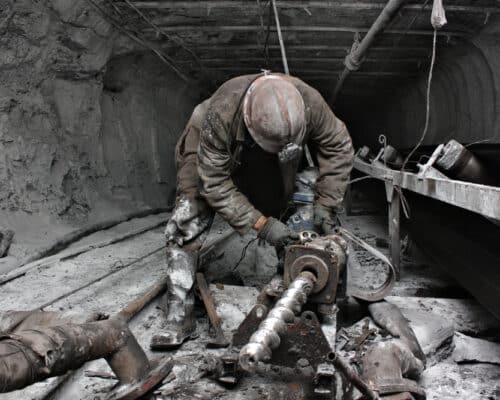Region
Indonesia Dances Around Taxonomies to Mobilise Capital for Its Coal Phaseout Programmes
Since Indonesia signed the US$20 billion Just Energy Transition Partnership (JETP) agreements late last year, the government has mobilised multiple workstreams to create policy structures to support the critical first stage of early coal retirement. However, more than mere tweaks to criteria for supporting early coal retirement may be required.
Coal Phase-out Accelerates Globally Except in China: ‘Boom and Bust’ 2023
Thanks to its unprecedented renewable energy capacity additions, China was poised to be a leader in the battle against climate change. However, its coal pivot risks tarnishing that.
Japan’s ‘Green Transformation’ (GX) Is Stacked With Fossil Fuel-based Technology
Japan is promoting its green energy transformation, but it's a false narrative since it still includes liquefied natural gas (LNG), coal and fossil fuel-based technology. Japan must also quickly set forth a formal coal reduction and elimination plan before it hosts the next G7 meeting in May.
Fossil Fuel Imports Risk Japan’s Energy Security
Japan has low domestic fossil fuel production yet relies on fossil fuels for most of its energy. High dependence on foreign imports is creating energy security concerns. However, Japan remains seemingly uncommitted to completely phasing out fossil fuels, lagging behind other G7 nations.

G7 Ministers’ Meeting 2023: What Is the Desired Outcome?
The G7 Climate and Energy Ministerial Meeting is shaping up to be a roadshow for Japan's questionable technologies. If the world is to stand a chance in limiting climate change to 1.5°C, the G7 reject the proposals, speed up coal phase-out and limit gas investments.
Wind Energy in Vietnam – Opportunities and Potential
Vietnam has already established itself as one of the world's most notable clean energy success stories. However, to retain that crown, the country needs to incentivise foreign financiers.
Japan-Vietnam Energy Relations: Opportunities and Risks
Vietnam needs a partner that will prioritise its decarbonisation and access to affordable and ready-to-be deployed solutions to make the most of its clean energy potential. It doesn't need to be pushed towards distracting technologies with questionable decarbonisation credentials. The approach that Japan will take in its cooperation remains to be seen.
Japan’s Sustainability Programs Are Lacking Compared to G7
Japan is hosting the G7 summit in 2023, which will include discussions on decarbonisation and renewable energy development. However, Japan's sustainability efforts are considered some of the poorest of the G7 nations. The country's financing of fossil fuel projects throughout Asia, its reliance on coal and its questionable strategy towards decarbonisation are all concerns. As the host, Japan should promote sustainability efforts.
Oil Spill in the Philippines Implicates San Miguel Corporation
A major oil spill in the Philippines raises concerns over a corporate giant’s refusal to accept responsibility for the disaster. It also raises concerns over its dismal environmental record due to liquefied natural gas (LNG) development. The government is waffling, and the environment, local residents and fisherfolk are suffering.
The Power Sector in Bangladesh Is Slowing Its Economic Growth
Bangladesh's energy crisis rocked the country in the second half of 2022. Brought on by record-high LNG prices, the country – which is heavily reliant on natural gas – had to limit local energy consumption. Rolling blackouts, power-shedding and other energy-saving measures have been significant roadblocks for the country's growing manufacturing sector.

China’s Fossil Fuel Addiction and the Green Transition
China's renewables development leads the world by a more than a two-to-one ratio, but its fossil fuel usage still accounts for more than 50% of its power production needs, creating the world’s highest GHG emissions.
Driving Change: The Story of Electric Vehicles in Indonesia
The EV transition is taking the world by storm. While emerging markets remain the last bastion of legacy automakers, they will soon also embrace the transport industry's electrification. And Indonesia promises to be among the best examples of the EV revolution.
Most Popular
Categories
-
9
-
33
-
126
-
4
-
17
-
43
-
52
-
11
-
10
-
15
-
24
-
6
-
6
-
249
-
196
-
14
-
23
-
1
-
1
-
23
-
38
-
42
-
84
-
18
-
81
-
41
-
17
-
10
-
40
-
43
-
86
-
284
-
21
-
40
-
35
-
10
-
41
-
36

